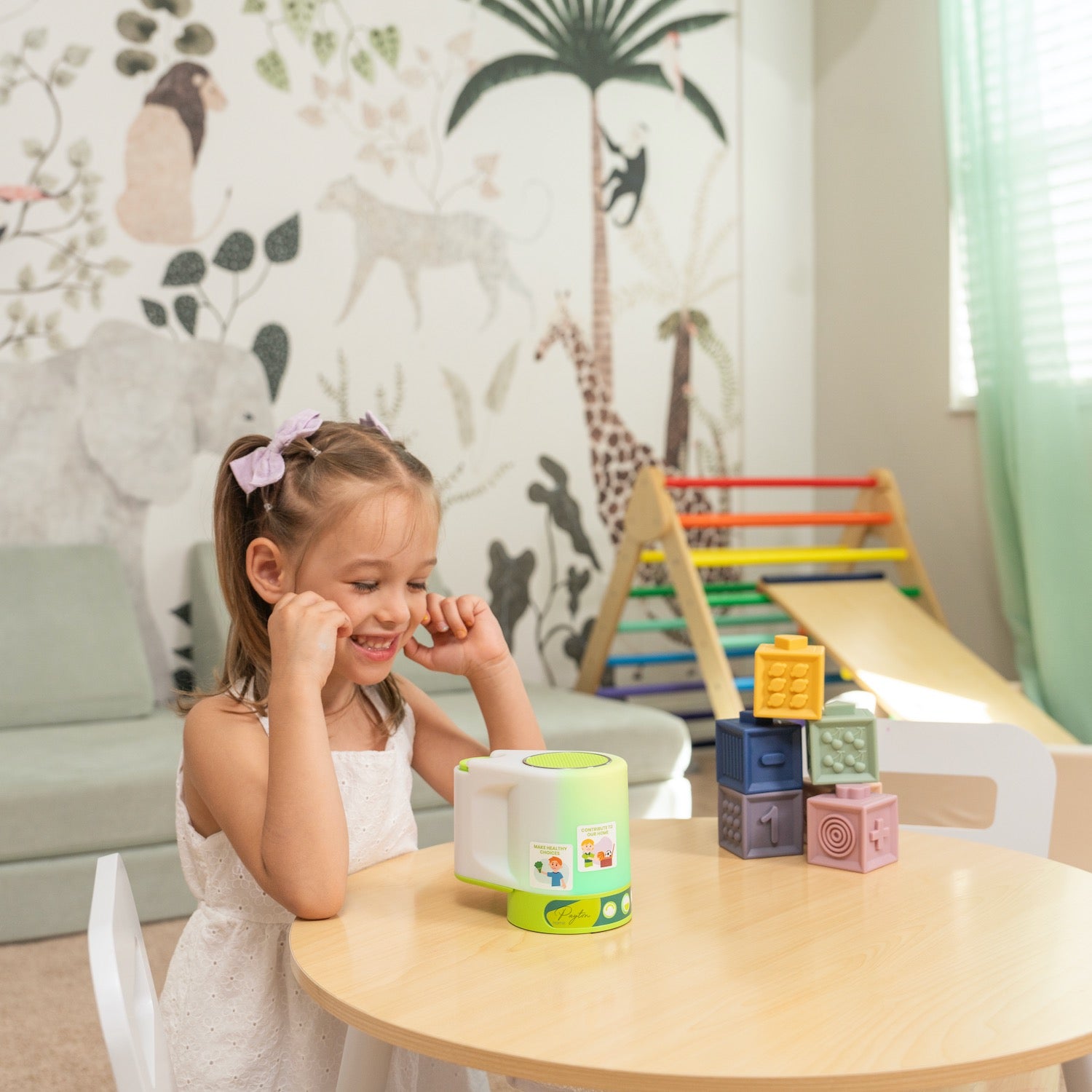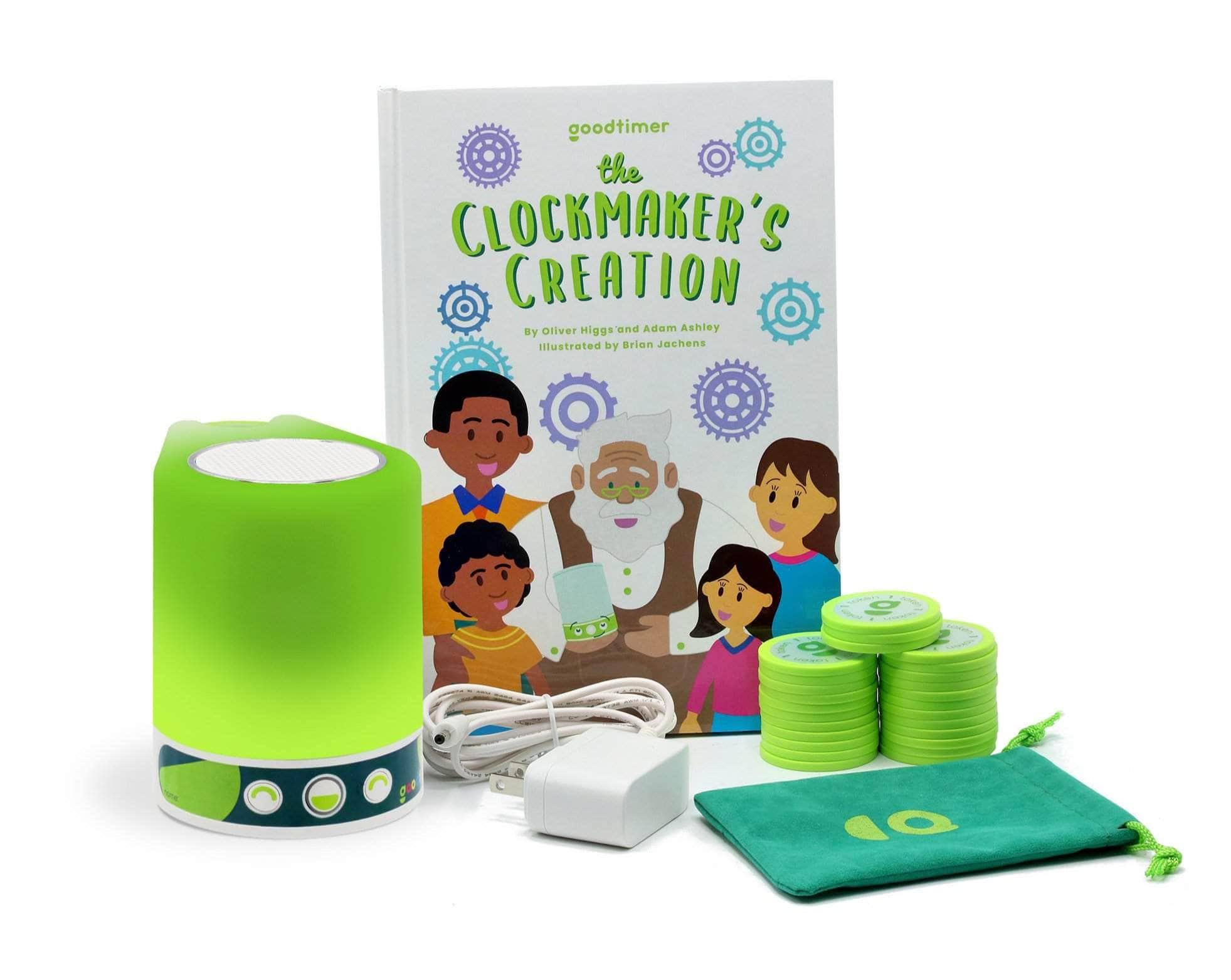By Julie Tripp and Ali Kresch Levine, PsyD
Homework Help from your Goodtimer
After a long day, your child may need to vent about their homework woes. Unlucky for them, though, is the high likelihood that you also had a long day which may make it difficult for you to find patience for their homework complaints. Perhaps you even put pressure on yourself to make this time of day the time you support your child’s success in school, in which case pushing past your own exhaustion to help them with a worksheet may end up in a fight between two frustrated parties.
The bad news is, most children never show unbridled excitement for math worksheets, and, that doesn’t mean homework sessions need to be unpleasant. Start by changing your point of view to acknowledge the hard truth that you can’t force your child to learn. Then, try to set a light and playful tone supported by scientific research over the past century indicating that play-based learning is highly effective (this is partly because children are less stressed when they are playing which makes it easier for them to absorb new information).
The trap of mulling over all of the reasons why students should not have homework can be tempting to fall into, however going down this rabbit hole does not change the fact that they do have homework. So, let's use our energy to support their efforts and look at some ways to create optimal learning environments for our little homework heros:
8 Tips for Helping Kids with Homework
- Dedicated Space: Having an established, well-lit area can work wonders. In the spirit of fostering your child’s autonomy, ask them to help you plot out and create a kids’ homework station that supports their specific needs.
- Routines Work: Talk with your child about when it makes sense for them to do their homework, and then create a Goodtimer rule around that schedule.
- Encourage Autonomy: Your kid wants to do well. They might wander a bit within their set boundaries, but by allowing them to arrive at the end goal in their own way gives them a sense of ownership over their accomplishment.
- Conext over Content: Don’t allow a sassy remark or sour tone to set you off course. Instead of becoming distracted by a bad attitude, keep the focus on giving your child the chance to complete their work. You might respond to them by asking, “How can I help you focus on schoolwork?” Then, truly listen to their response with curiosity and openness.
- Let Them Learn Naturally: If your child refuses to do their homework (or breaks a house rule surrounding homework), simply ask for a Goodtimer flip so they can feel an immediate consequence before allowing them to take that unfinished assignment to their teacher and experience real-world consequences. Remember, as difficult as this may seem, childhood is the ideal time for them to learn these lessons.
- Support child-led plans: Kids feel driven to rule their own lives, so let them set their own goals and game plan to achieve their wishes. They want to succeed in school, but still need your guidance on creating a path that makes sense. Work with your child to create an amazing Goodtimer incentive. As their Goodtimer glows during homework time, their mindset will switch from grumpy to glad as they focus on all of the positive outcomes of their hard work.
- Don’t Overstep: You could shut their tantrum down by simply doing the work for them, but what they truly need is a coach who teaches them how to find their calm and them empowers them to work independently and sustainably. Remember, kids want autonomy, even if they don’t show it all the time!
- Be Aware of and on the Lookout for Learning Differences: Over 4 million children have learning differences such as ADHD, dyslexia, or dysgraphia. These conditions often impact the types of educational support they benefit from. If there’s a chance your child is struggling with their homework because of a learning difference, talk to your pediatrician. Remember, a diagnosis can be a useful jumping off point in understanding how to help your child thrive.
In summary: your child wants to know that you simultaneously believe in them and are there to support them. Care for yourself so you can show up for them with encouragement via verbal praise (e.g., “you can do great and wonderful things!”) and reminders of their goals/Goodtimer incentives. This environment of understanding, positivity, and encouragement, increases our children's capacity for self-motivation and independence.










Leave a comment